Napoléon is a 1927 silent French epic film written, produced, and directed by Abel Gance that tells the story of Napoleon's early years. On screen, the title is Napoléon vu par Abel Gance, meaning "Napoleon as seen by Abel Gance". The film is recognised as a masterwork of fluid camera motion, produced in a time when most camera shots were static. Many innovative techniques were used to make the film, including fast cutting, extensive close-ups, a wide variety of hand-held camera shots, location shooting, point of view shots, multiple-camera setups, multiple exposure, superimposition, underwater camera, kaleidoscopic images, film tinting, split screen and mosaic shots, multi-screen projection, and other visual effects. A revival of Napoléon in the mid-1950s influenced the filmmakers of the French New Wave.
| Napoléon | |
|---|---|
Albert Dieudonné as Napoleon | |
| Directed by | Abel Gance |
| Produced by | Abel Gance |
| Written by | Abel Gance |
| Starring |
|
| Music by |
|
| Cinematography | Jules Kruger |
| Edited by |
|
| Distributed by | Gaumont |
Release date |
|
Running time | 330 minutes (and various other lengths) |
| Country | France |
| Language | Silent film with intertitles |
The film begins in Brienne-le-Château with youthful Napoleon attending military school where he manages a snowball fight like a military campaign, yet he suffers the insults of other boys. It continues a decade later with scenes of the French Revolution and Napoleon's presence at the periphery as a young army lieutenant. He returns to visit his family home in Corsica but politics shift against him and put him in mortal danger. He flees, taking his family to France. Serving as an officer of artillery in the Siege of Toulon, Napoleon's genius for leadership is rewarded with a promotion to brigadier general. Jealous revolutionaries imprison Napoleon but then the political tide turns against the Revolution's own leaders. Napoleon leaves prison, forming plans to invade Italy. He falls in love with the beautiful Joséphine de Beauharnais. The emergency government charges him with the task of protecting the National Assembly. Succeeding in this he is promoted to Commander-in-Chief of the Army of the Interior, and he marries Joséphine. He takes control of the army which protects the French–Italian border, and propels it to victory in an invasion of Italy.
Gance planned for Napoléon to be the first of six films about Napoleon's career, a chronology of great triumph and defeat ending in Napoleon's death in exile on the island of Saint Helena. After the difficulties encountered in making the first film, Gance realised that the costs involved would make the full project impossible.
Napoléon was first released in a gala at the Palais Garnier (then the home of the Paris Opera) on 7 April 1927. Napoléon had been screened in only eight European cities when Metro-Goldwyn-Mayer bought the rights to it, but after screening it in London, it was cut drastically in length, and only the central panel of the three-screen Polyvision sequences was retained before it was put on limited release in the United States. There, the film was indifferently received at a time when talkies were just starting to appear. The film was restored in 1981 after twenty years' work by silent film historian Kevin Brownlow.
Screenplay
The scenario of the film as originally written by Gance was published in 1927 by Librairie Plon. Much of the scenario describes scenes that were rejected during initial editing, and do not appear in any known version of the film. The following plot includes only those scenes that are known to have been included in some version of the film. Not every scene described below can be viewed today.
Part One
Brienne
In the winter of 1783, young Napoleon Buonaparte (Vladimir Roudenko) is enrolled at Brienne College, a military school for sons of nobility, run by the religious Minim Fathers in Brienne-le-Château, France. The boys at the school are holding a snowball fight organised as a battlefield. Two bullies—Philippeaux (Petit Vidal) and Peccaduc (Roblin)—schoolyard antagonists of Napoleon, are leading the larger side, outnumbering the side that Napoleon fights for. These two sneak up on Napoleon with snowballs enclosing stones. A hardened snowball draws blood on Napoleon's face. Napoleon is warned of another rock-snowball by a shout from Tristan Fleuri (Nicolas Koline), the school's scullion and a friend to Napoleon. Napoleon recovers himself and dashes alone to the enemy snowbank to engage the two bullies in close combat. The Minim Fathers, watching the snowball fight from windows and doorways, applaud the action. Napoleon returns to his troops and encourages them to attack ferociously. He watches keenly and calmly as this attack progresses, assessing the balance of the struggle and giving appropriate orders. He smiles as his troops turn the tide of battle. Carrying his side's flag, he leads his forces in a final charge and raises the flag at the enemy stronghold.
The monks come out of the school buildings to discover who led the victory. A young military instructor, Jean-Charles Pichegru (René Jeanne), asks Napoleon for his name. Napoleon responds "Nap-eye-ony" in Corsican-accented French, and is laughed at by the others. Despite the fact Pichegru thought Napoleon had said "Paille-au-nez" (straw in the nose), Pichegru tells him that he will go far.
In class, the boys study geography. Napoleon is angered by the condescending textbook description of Corsica. He is taunted by the other boys, and kicked by the two bullies who hold flanking seats. Another of the class's island examples is Saint Helena, which puts Napoleon into a pensive daydream.
Unhappy in school, Napoleon writes about his difficulties in a letter to his family. A bully reports to a monk that Napoleon is hiding letters in his bed, and the monk tears the letter to pieces. Angry, Napoleon goes to visit the attic quarters of his friend Fleuri, a place of refuge where Napoleon keeps his captive bird, a young eagle that was sent to him from Corsica by an uncle. Napoleon tenderly pets the eagle's head, then leaves to fetch water for the bird. The two bullies take this opportunity to set the bird free. Napoleon finds the bird gone and runs to the dormitory to demand the culprit show himself. None of the boys admits to the deed. Napoleon exclaims that they are all guilty, and begins to fight them all, jumping from bed to bed. In the clash, pillows are split and feathers fly through the air as the Minim Fathers work to restore order. They collar Napoleon and throw him outside in the snow. Napoleon cries to himself on the limber of a cannon, then he looks up to see the young eagle in a tree. He calls to the eagle which flies down to the cannon barrel. Napoleon caresses the eagle and smiles through his tears.
The French Revolution
In 1792, the great hall of the Club of the Cordeliers is filled with revolutionary zeal as hundreds of members wait for a meeting to begin. The leaders of the group, Georges Danton (Alexandre Koubitzky), Jean-Paul Marat (Antonin Artaud) and Maximilien Robespierre (Edmond Van Daële), are seen conferring. Camille Desmoulins (Robert Vidalin), Danton's secretary, interrupts Danton to tell of a new song that has been printed, called "La Marseillaise". A young army captain, Claude Joseph Rouget de Lisle (Harry Krimer) has written the words and brought the song to the club. Danton directs de Lisle to sing the song to the club. The sheet music is distributed and the club learns to sing the song, rising in fervor with each passage. At the edge of the crowd, Napoleon (Albert Dieudonné), now a young army lieutenant, thanks de Lisle as he leaves: "Your hymn will save many a cannon."
Splashed with water in a narrow Paris street, Napoleon is noticed by Joséphine de Beauharnais (Gina Manès) and Paul Barras (Max Maxudian) as they step from a carriage on their way into the house of Mademoiselle Lenormand (Carrie Carvalho), the fortune teller. Inside, Lenormand exclaims to Joséphine that she has the amazing fortune to be the future queen.
On the night of 10 August 1792, Napoleon watches impassively as mob rule takes over Paris and a man is hung by revolutionaries. In front of the National Assembly, Danton tells the crowd that they have cracked the monarchy. Napoleon senses a purpose rising within him, to bring order to the chaos. The mob violence has tempered his character.
Napoleon, on leave from the French Army, travels to Corsica with his sister, Élisa (Yvette Dieudonné). They are greeted by his mother, Letizia Buonaparte (Eugénie Buffet) and the rest of his family at their summer home in Les Milelli. The shepherd Santo-Ricci (Henri Baudin) interrupts the happy welcome to tell Napoleon the bad news that Corsica's president, Pasquale Paoli (Maurice Schutz) is planning to give the island to the British. Napoleon declares his intention to prevent this fate.
Riding a horse and revisiting places of his childhood, Napoleon stops in Milelli gardens and considers whether to retreat and protect his family, or to advance into the political arena. Later in the streets of Ajaccio, Pozzo di Borgo (Acho Chakatouny) encourages a mob to put Napoleon to death for opposing Paoli, and the townsfolk surround the Buonaparte home. Napoleon stands outside the door and stares the crowd down, dispersing them silently. Paoli signs a death warrant, putting a price on Napoleon's head. Napoleon's brothers, Lucien (Sylvio Cavicchia) and Joseph (Georges Lampin), leave for Calvi to see if French authorities can intervene. Napoleon faces the danger alone, walking into an inn where men are arguing politics, all of whom would like to see him dead. He confronts the men and says, "Our fatherland is France ...with me!" His arguments subdue the crowd, but di Borgo enters the inn, accompanied by gendarmes. Napoleon evades capture and rides away on his horse, pursued by di Borgo and his men.
Upstairs in the Ajaccio town hall, a council declares war on France even while the French flag flies outside the window. Napoleon climbs up the balcony and takes down the flag, shouting to the council, "It is too great for you!" The men fire their pistols at Napoleon but miss as he rides away.
While chasing Napoleon, di Borgo stretches a rope across a road that Napoleon is likely to take. As expected, Napoleon rides toward the rope, but he draws his sabre and cuts it down. Napoleon continues at high speed to the shore where he finds a small boat. He abandons the horse and gets into the boat, discovering that it has no oars or sail. He unfurls the French flag from Ajaccio and uses it as a sail. He is drawn out into the open sea.
Meanwhile, in Paris, meeting in the National Assembly, the majority Girondists are losing to the Montagnards: Robespierre, Danton, Marat and their followers. Robespierre calls for all Girondists to be indicted. (Napoleon's boat is tossed by increasing waves.) The Girondists seek to flee but are repulsed. (A storm throws Napoleon back and forth in his boat.) The assembly hall rolls with the struggle between Girondists and Montagnards. (Napoleon grimly bails water to prevent his violently rocking boat from sinking.)
Later, in calm water, the small boat is seen by Lucien and Joseph Buonaparte aboard a French ship, Le Hasard. The larger ship is steered to rescue the unknown boat, and as it is pulled close, Napoleon is recognised, lying unconscious at the bottom, gripping the French flag. Waking, Napoleon directs the ship to a cove in Corsica where the Buonaparte family is rescued. The ship sails for France carrying a future queen, three future kings, and the future Emperor of France. The British warship HMS Agamemnon sights Le Hasard, and a young officer, Horatio Nelson (Olaf Fjord), asks his captain if he might be allowed to shoot at the enemy vessel and sink it. The captain denies the request, saying that the target is too unimportant to waste powder and shot. As Le Hasard sails away, an eagle flies to the Buonapartes and lands on the ship's flag pole.
Part Two
In July 1793, fanatic Girondist Charlotte Corday (Marguerite Gance) visits Marat in his home and kills him with a knife. Two months later, General Jean François Carteaux (Léon Courtois), in control of a French army, is ineffectively besieging the port of Toulon, held by 20,000 English, Spanish and Italian troops. Captain Napoleon is assigned to the artillery section and is dismayed by the obvious lack of French discipline. He confronts Carteaux in an inn run by Tristan Fleuri, formerly the scullion of Brienne. Napoleon advises Carteaux how best to engage the artillery against Toulon, but Carteaux is dismissive. An enemy artillery shot hits the inn and scatters the officers. Napoleon stays to study a map of Toulon while Fleuri's young son Marcellin (Serge Freddy-Karl) mimes with Napoleon's hat and sword. Fleuri's beautiful daughter Violine Fleuri (Annabella) admires Napoleon silently.
General Jacques François Dugommier (Alexandre Bernard) replaces Carteaux and asks Napoleon to join in war planning. Later, Napoleon sees a cannon being removed from a fortification and demands that it be returned. He fires a shot at the enemy, and establishes the position as the "Battery of Men Without Fear". French soldiers rally around Napoleon with heightened spirits. Dugommier advances Napoleon to the position of commander-in-chief of the artillery.
French troops under Napoleon prepare for a midnight attack. Veteran soldier Moustache (Henry Krauss) tells 7-year-old Marcellin, now a drummer boy, that the heroic drummer boy Joseph Agricol Viala was 13 when he was killed in battle. Marcellin takes courage; he expects to have six years of life left. Napoleon orders the attack forward amidst rain and high wind. A reversal causes Antoine Christophe Saliceti (Philippe Hériat) to name Napoleon's strategy a great crime. Consequently, Dugommier orders Napoleon to cease attacking, but Napoleon discusses the matter with Dugommier and the attack is carried forward successfully despite Saliceti's warnings. English cannon positions are taken in bloody hand-to-hand combat, lit by lightning flashes and whipped by rain. Because of the French advance, English Admiral Samuel Hood (W. Percy Day) orders the burning of the moored French fleet before French troops can recapture the ships. The n
Watch movie Napol%c3%a9on 1927 Film online on Amazon
Watch movie Napol%c3%a9on 1927 Film online
Watch The Movie On PrimeAitbaar (1985) Full HD Movie Download
.jpg)
Durga Pooja Full HD Movie Download

Bheegi Raat Full HD Movie Download
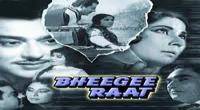
Dariya Dil Full HD Movie Download
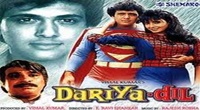
Bheja Fry 2 Full HD Movie Download

Ghar Ghar Ki Kahani (1988) Full HD Movie Download
.jpg)
Kurbaan (2009) Full HD Movie Download
.jpg)
Game (Hindi) Full HD Movie Download
.jpg)
Will You Marry Me? Full HD Movie Download

Vidhana Tohre Des Mein Full HD Movie Download
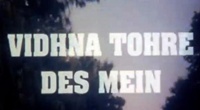
Daku Veera Full HD Movie Download
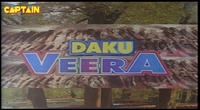
Allari Alludu Full HD Movie Download

Raajadaani Full HD Movie Download
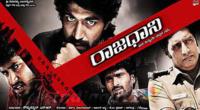
Jay Maa Full HD Movie Download

Adade Aadram Full HD Movie Download
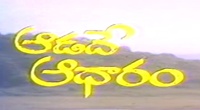
Sikaram Full HD Movie Download
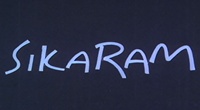
Abhimanavanthulu Full HD Movie Download

Kathiki Kankanam Full HD Movie Download
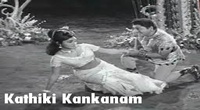
Mahakali Ka Insaaf Full HD Movie Download

Soori Full HD Movie Download

Iddaru Mitrulu Full HD Movie Download
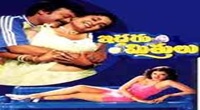
Download latest Movie from bollywood
- 1> baaghi 3
- 2> THE SKY IS PINK MOVIE FULL STORY AND REVIEW
- 3> Luka Chuppi
- 4> TO ALL THE BOYS I’VE LOVED BEFORE
- 5> Kabir Singh
- 6> Street Dancer 3D
- 7> Simmba
- 8> Gone Girl
- 9> The Girl Who Lived
- 10> Ludo
- 11> DILWALE DULHANIA LE JAYENGE
- 12> GUILTY
- 13> The Godfather
- 14> Adventures of Rusty
- 15> Sooryavanshi
- 16> Satyameva Jayate 2
- 17> Thappad
- 18> Bhool Bhulaiyaa 2
- 19> KGFChapter 2
- 20> Mardaani 2
- 21> Pinjar
- 22> Shivaji maharaj
- 23> Ek Villian 2
- 24> Hungama 2
- 25> Divergent
- 26> Mumbai Saga
- 27> The Internship
- 28> HIT (telugu)
- 29> Panga
- 30> The perfect date
- 31> 16 December
- 32> Gopala Gopala (Telugu)
- 33> Brahmastra
- 34> Gangubai Kathiawadi
- 35> Manmadhudu
- 36> Nenu local
- 37> Mahanati
- 38> Shatamanam bavathi
- 39> Lagaan
- 40> After
- 41> MOM
- 42> Shamshera
- 43> Raguvaran BTech
- 44> Khakee
- 45> The villain
- 46> OM
- 47> Mr. perfect
- 48> Bueatifull mind
- 49> Hichki
- 50> Gabbar Singh
- 51> Jogi
- 52> Before Sunrise
- 53> Before Sunset
- 54> Before Midnight
- 55> The Big Bull
- 56> Top Gun: Maverick
- 57> The Purge
- 58> The Sky is Pink
- 59> Laxmmi Bomb
- 60> Sadak 2
- 61> Sufna
- 62> Prithviraj
- 63> PK
- 64> Coolie No 1(2020)
- 65> Black Widow
- 66> Dear Zindagi
- 67> Dil Bechara
- 68> PHIR HERA PHERI
- 69> WAR
- 70> Dostana
- 71> RRR: Roudram Ranam Rudhiram
- 72> Maidan
- 73> Dabbang 3
- 74> Chhalaang
- 75> life as we know it
- 76> SherShaah
- 77> Sandeep Aur Pinky Faraar
- 78> Event Horizon
- 79> 83
- 80> Radhe: Your Most Wanted Bhai
- 81> Gunjan Saxena: The Kargil Girl
- 82> Mr India
- 83> Vivah
- 84> Anokha Bandhan
- 85> Ghost
- 86> Bhoot: Part One - The Haunted Ship
- 87> Haseen Dilruba
- 88> Laal Singh Chaddha
- 89> Qismat
- 90> Rajput
- 91> Drive
- 92> Dil Chahta Hai
- 93> Dil Ki Baazi
- 94> Dil Ka Rishta
- 95> Teesri Manzil
- 96> Dil
- 97> Love Aaj Kal
- 98> Khaali Peeli
- 99> Bunty Aur Babli 2
- 100> Atrangi Re
- 101> Gulabo Sitabo
- 102> Jodi
- 103> Suraj Pe Mangal Bhari
- 104> Deewana
- 105> Attack
- 106> Sardar Udham Singh
- 107> Toofan
- 108> THE LOVEBIRDS
- 109> Jersey
- 110> Ginny Weds Sunny
- 111> Thalaivi
- 112> Shiddat
- 113> Angels vs Zombies
- 114> Koi Mil Gya
- 115> Thank God
- 116> Bhuj: The Pride of India
- 117> Hum Aapke Hain Kaun
- 118> The Platform
- 119> Bird Box
- 120> Roohi Afzana
- 121> Torbaaz
- 122> Nikamma
- 123> World War Z
- 124> Extraction
- 125> Train to Busan
- 126> Life of Pi
- 127> SHAADI MEIN JROOR AANA
- 128> Himmat Aur Mehnat
- 129> To All The Boys: P.S. I Still Love You
- 130> Mimi
- 131> Good Newwz
- 132> Shubh Mangal Zyada Saavdhan
- 133> Raabta
- 134> Harry Potter and the Philosopher's Stone
- 135> Harry Potter and the Chamber of Secrets
- 136> Chhapaak
- 137> War of the Worlds
- 138> Harry Potter and the Prisoner of Azkaban
- 139> Harry Potter and the Goblet of Fire
- 140> MURDER MYSTERY
- 141> Shakuntala Devi
- 142> Bachchan Pandey
- 143> Jayeshbhai Jordar
- 144> Sheer Qorma
- 145> Saina
- 146> 'O' Pushpa I hate tears
- 147> Kedarnath
- 148> MS Dhoni The Untold Story
- 149> Chhichhore
- 150> Badhaai Ho
- 151> Unstoppable
- 152> Oz the Great And Powerful
- 153> The Girl on the Train
- 154> Haathi Mere Saathi 2020
- 155> The Conjuring: The Devil Made Me Do It
- 156> Gandhi Se Pehle Gandhi
- 157> The Song of Scorpions
- 158> Srimanthudu
- 159> Hello Guru Prema Kosame
- 160> Beauty and The Beast
- 161> Black Panther
- 162> Charlie and the Chocolate Factory
- 163> Bole Chudiyan
- 164> Fidaa
- 165> Duvvada Jagannadham
- 166> Bruce Lee: The Fighter
- 167> Hyper
- 168> Yaara
- 169> Red (2020)
- 170> Shivam
- 171> That Is Mahalakshmi
- 172> Nishabdham
- 173> Aashram 2020 web series
- 174> Laxmii
- 175> Mismatched
- 176> STUDENT OF THE YEAR 2
- 177> NAIL POLISH
- 178> Ramprasad Ki Tehrvi
- 179> KAAGAZ
- 180> 12 o Clock
- 181> The Power
- 182> bolo hau
- 183> Tribhanga
- 184> JAMUN
- 185> Madam Chief Minister
- 186> Maasaab
- 187> Aadhaar
- 188> Tanhaji
- 189> Bhaagi 3
- 190> Bhootnath
- 191> MALANG
- 192> Jai Mummy Di
- 193> Haathi Mere Saathi 2021
- 194> Shakeela
- 195> Unpaused
- 196> Annayya
- 197> Vamsoddharakudu
- 198> Mrugaraju
- 199> Narasimha Naidu
- 200> Sankranti
- 201> Manasu Maata Vinadhu
- 202> Anjaane
- 203> Apaharan
- 204> Bachke Rehna Re Baba
- 205> Bewafaa
- 206> Roohi
- 207> Radhe
- 208> Zindagi Khoobsoorat Hai
- 209> Yeh Mohabbat Hai
- 210> Yeh Kya Ho Raha Hai?
- 211> The Tomorrow War
- 212> DehradunDiary
- 213> Meri Shaadi Karaoo
- 214> Matruu Ki Bijlee Ka Mandola
- 215> No One Killed Jesica
- 216> Aag Ka Goola
- 217> Eight Million Dollars
- 218> Three Hundred
- 219> Cats and Dog
- 220> Decoy
- 221> Gold Rush
- 222> You Have Got Mail
- 223> Final Destination three
- 224> Tofan
- 225> Jungle
 Story of movie Napol%c3%a9on 1927 Film :
Story of movie Napol%c3%a9on 1927 Film : 